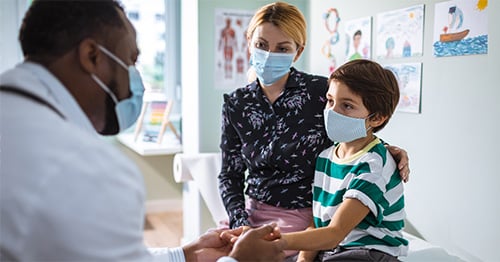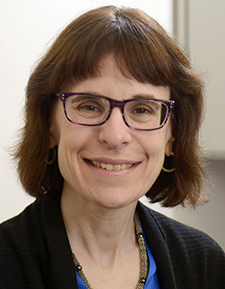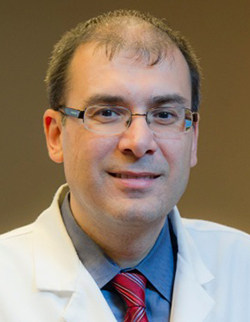Pediatric Antiphospholipid Syndrome – Top 10 Series

- What is the definition of antiphospholipid syndrome (APS)?
- What is the difference between pediatric APS and neonatal APS?
- What are the symptoms and signs of pediatric APS?
- What are the clinical differences between antiphospholipid syndrome in children and adults?
- Does antiphospholipid syndrome run in families? Is APS inherited?
- Can antiphospholipid syndrome be cured? What treatments for APS are available?
- What are the treatment differences between childhood and adult onset antiphospholipid syndrome?
- Is it safe for pediatric antiphospholipid syndrome patients to get vaccinations?
- How might APS affect my child’s daily life – school, sports, diet?
- What is the long-term prognosis of antiphospholipid syndrome in children?
1) What is the definition of antiphospholipid syndrome (APS)?
Antiphospholipid syndrome (APS) is a chronic, autoimmune disease that can increase the risk of blood clots (thrombosis) and pregnancy complications. "Chronic" means that it can last for a long time. "Autoimmune" means that there is a disorder of the immune system, which causes it to make pathogenic antibodies against your own body tissues. In APS, these are called antiphospholipid antibodies (aPL). The aPL are directed against various natural proteins in the body, and this may cause clotting in the blood vessels. Antiphospholipid syndrome may occur on its own (known as primary APS) or in association with other autoimmune diseases, mainly lupus (also known as systemic lupus erythematosus or SLE).
2) What is the difference between pediatric APS and neonatal APS?
Pediatric APS simply refers to when APS appears in childhood. It is the most common autoimmune disease to cause increased blood clotting in children. Neonatal APS refers to when this disease is present during the first month after a baby is born.
In childhood, APS may appear at any time from birth on through adolescence. It is challenging to determine the exact causes of APS in children and to estimate the number of children affected. This is because the disease is so rare and there is lack of validated diagnostic criteria. In neonatal APS, the disease may arise by being passed through the placenta by a mother who has aPL. This is known as transplacental passage of aPL. More rarely, an infant whose mother is not aPL-positive may become aPL-postive. (This is known as a de novo occurrence of APS.)
3) What are the symptoms and signs of pediatric APS?
The specific symptoms and severity of APS vary greatly from person to person depending upon the location of the blood clot and the organ system affected. Children with aPL may present with blood clots and/or a variety of other clinical manifestations. The most frequent vascular occlusive (blood clotting) events are:
- deep vein thrombosis (DVT) – blood clots in the veins of the legs
- pulmonary embolism – blood clots in the arteries of the lungs that can cause life-threatening respiratory problems
- blood clots in the brain leading to stroke
In addition, blood clots in small blood vessels can lead to dysfunction or failure in several other organs. Other symptoms, unrelated to blood clots include:
- low platelet counts (thrombocytopenia)
- anemia
- heart valve disease
- livedo reticularis (a purplish, mottled discoloration of the skin)
- pregnancy-related complications in teenagers, such as late miscarriages or stillbirths
4) What are the clinical differences between antiphospholipid syndrome in children and adults?
Most generally, children and adolescents lack some of the common blood clot risk factors of adulthood, but also have higher incidences of blood vesssel clots in the brain and associations with lupus.
Although there are a number of features that are in common with the adult onset disease, there are numerous key differences that are unique to pediatric APS. Generally, children do not have the common, non-aPL-related risk factors for blood clots that adults have, such as:
- atherosclerosis (stiffening of the blood vessels due to cholesterol plaque formation)
- hypertension (high blood pressure)
- smoking or other nicotine use
- use of estrogen supplement therapies
For these reasons, the proportion of blood clots which may be caused by aPL alone (rather than by other contributing conditions) may be higher in children than in the adult population.
Cerebrovascular events (blood clots in brain) such as cerebral sinus venous thrombosis (CSVT) and ischemic stroke are much more frequent in pediatric APS compared to adults. Also, in pediatric patients, APS is more commonly associated with lupus (another autoimmune disorder) as compared to in adults, in whom APS may more frequently occur by itself. In adults, APS is more common in women than men, however, the frequency of pediatric APS is similar among girls and boys.
5) Does antiphospholipid syndrome run in families? Is APS inherited?
Most cases of APS are sporadic, which means they occur in people with no history of the disorder in their family. Rarely, the condition has been reported to run in families, but no clear pattern of inheritance has been found.
People with a genetic predisposition for APS may develop aPL when they come into contact with a trigger, such as an infection. Parents of children with pediatric APS may wonder if they should have other family members tested for APS. Such routine testing is not recommended.
6) Can antiphospholipid syndrome be cured? What treatments for APS are available?
Currently, there are no specific medications to cure APS or to eliminate aPL. The main goals of treatment are to reduce blood clot formation and to prevent other complications.
The treatment of children with APS presents a unique challenge due to the lack of validated diagnostic criteria, the lack of evidence from randomized controlled trials, the rarity of the disease, and the increased concerns about bleeding complications and treatment adherence in children. Due to the lack of large-scale prospective studies in children, the treatment guidelines developed for the adult-onset form of the disease are also used in the treatment of pediatric APS cases.
Blood thinners remain the mainstay of medical therapy for prevention of recurrent blood clots. Once the diagnosis of APS is established after a blood clot, blood-thinners (anticoagulant medications) such as warfarin (Coumadin), aspirin, or low-molecular weight heparin are used to prevent recurrence of blood clots. Blood clots are initially treated with heparin followed by long-term warfarin.
Most children with positive aPL have never had a thrombosis. Preventive treatment with blood thinners in children is controversial because the increased risk of bleeding during play and sports may outweigh the unproven benefit of low-dose aspirin. On the other hand, underlying autoimmune disease, such as lupus (SLE), may increase risk of clot formation if positive aPL is present. In these cases, preventive therapies with aspirin is sometimes practiced, although the strength of this recommendation is controversial.
Hydroxychloroquine is an antimalarial medication with anti-inflammatory effects. it also reduces the clumping of platelets, which is a key step in the process of blood clot formation. Hydroxychloroquine can be used as a supportive treatment (in addition to the primary treatment) in APS patients who have difficult-to-control aPL-related manifestations, and it is frequently used for the treatment of lupus. Other immunosuppressive or immune system-modulating medications may be considered in more complicated cases, especially in patients with small vessel disease (a condition in which the walls of the small arteries in the heart are damaged).
7) What are the treatment differences between childhood and adult onset antiphospholipid syndrome?
As in adult APS patients, in the majority of cases, treatment of children with APS is focused on the prevention of further blood clots through long-term treatment with blood thinners. However, blood thinners can have significant lifestyle implications for the child with APS and it is essential to consider potential implications relating to school and recreational activities. In these children, contact sports are often discouraged due to the increased risk of bleeding. Furthermore, while aspirin is sometimes used in the management of adult aPL-positive patients, in children, aspirin is generally avoided due to concerns about the increased risk of bleeding during regular childhood activities, and concerns about Reye’s syndrome (a rare disease marked by swelling in the liver and brain).
8) Is it safe for pediatric antiphospholipid syndrome patients to get vaccinations?
This depends on which preventative medicinal treatments the child is receiving in response to their APS. In general, it is best to consult a pediatric rheumatologist before administering vaccines to your child.
Children with APS who are treated with blood thinners only may receive the standard childhood vaccines. Kids who have APS and are taking immunosuppressive medications should avoid live-virus vaccines (such as the measles-mumps-and-rubella vaccine, oral poliovirus vaccine and varicella vaccine). It is safe for all APS patients to receive inactivated vaccines (also known as "killed" vaccines). These vaccines consist of virus particles, bacteria or other pathogens that have been grown in culture and then lose disease producing capacity. Such vaccines include:
- anti-tetanus (tetanus shot)
- antidiphtheretic (diphtheria vaccine)
- antipolio Salk (polio vaccine)
- antihepatitis B (hepatitis vaccine)
- antipertussis (pertussis vaccine)
- pneumococcus (pneumonia vaccine)
- haemophilus influenzae type B (HIB vaccine)
- meningococcus (meningitis vaccine)
9) How might APS affect my child’s daily life – school, sports, diet?
Antiphospholipid syndrome is a chronic disease that requires lifelong treatment and follow-up. Most children with APS can lead a relatively normal lifestyle. Children and their parents should be educated about the symptoms of APS, and also about the potential complications of its treatment.
Children with APS do not need to be on a special diet unless they are on warfarin. Vitamin K normally helps with blood clotting. Warfarin works against vitamin K, causing blood clot to form more slowly. To ensure that warfarin is effectively thinning the blood, it is very important to eat about the same amount of vitamin K daily. Eating a diet rich in vitamin K could decrease the effect of warfarin on clotting factors. Some of the foods high in vitamin K include green leafy vegetables, cauliflower, egg yolks, liver, soybean products and some oils. Nutritional supplements, vitamins, and herbal products that can interact with warfarin should be avoided.
Living with APS does not mean that your child should be excluded from physical activity and sports. However, children on blood thinners or aspirin may have a higher tendency to bleed. Therefore, they should not participate in contact sports and activities with a risk of serious injury (football, basketball, soccer, rugby, skiing). Walking, swimming and biking (while wearing a helmet and other protective equipment) are safe activities. We recommend you consult with your child’s health care provider before enrolling your child in a physical activity program.
Birth control pills containing estrogen should be avoided by adolescent girls with APS, because estrogen can increase the risk of blood clots. Parents should discuss appropriate contraception methods for their teenage children with their doctor.
10) What is the long-term prognosis of antiphospholipid syndrome in children?
Currently there are not enough data about the long-term prognosis of pediatric APS patients. The majority of the children with persistently positive aPL do not develop blood clots, and the risk of recurrent blood clots is relatively low after starting blood thinners. Although there is currently no cure for APS, outcome improves dramatically with the early and appropriate treatment. Around 20% of the children initially diagnosed with primary APS eventually develop SLE. Blood clots occur rarely in the offspring of mothers with APS; providing such infants with blood thinners is not recommended.
References
Aguiar CL, Soybilgic A, Avcin T, Myones BL. Pediatric antiphospholipid syndrome. Curr Rheumatol Rep. 2015; 17: 27.
Garcia D, Erkan D. Diagnosis and Management of the Antiphospholipid Syndrome. N Engl J Med. 2018; 378: 2010-21
Wincup C, Ioannou Y. The Differences Between Childhood and Adult Onset Antiphospholipid Syndrome. Front Pediatr. 2018; 6: 362.
Avcin T, Cimaz R, Silverman ED, Cervera R, Gattorno M, Garay S, et al. Pediatric antiphospholipid syndrome: clinical and immunologic features of 121 patients in an international registry. Pediatrics. 2008;122: e1100-7.
Tarango C, Palumbo JS. Antiphospholipid syndrome in pediatric patients. Curr Opin Hematol. 2019; 26: 366-71.
Groot N, de Graeff N, Avcin T, Bader-Meunier B, Dolezalova P, Feldman B, et al. European evidence-based recommendations for diagnosis and treatment of paediatric antiphospholipid syndrome: the SHARE initiative. Ann Rheum Dis. 2017; 76: 1637-41.
Meroni PL, Argolini LM, Pontikaki I. What is known about pediatric antiphospholipid syndrome? Expert Rev Hematol. 2016; 9: 977-85.
Rumsey DG, Myones B, Massicotte P. Diagnosis and treatment of antiphospholipid syndrome in childhood: A review. Blood Cells Mol Dis. 2017; 67: 34-40.
Bijl M, Agmon-Levin N, Dayer JM, Israeli E, Gatto M, Shoenfeld Y. Vaccination of patients with auto-immune inflammatory rheumatic diseases requires careful benefit-risk assessment. Autoimmun Rev. 2012;11: 572-76.
Kobayashi I, Mori M, Yamaguchi K, Ito S, Iwata N, Masunaga K, et al. Pediatric Rheumatology Association of Japan recommendation for vaccination in pediatric rheumatic diseases. Mod Rheumatol. 2015; 25: 335-43.
Moll S, Berkowitz JN, Miars CW. Elite athletes and anticoagulant therapy: an intermittent dosing strategy. Hematology Am Soc Hematol Educ Program. 2018; 30: 412-17.


